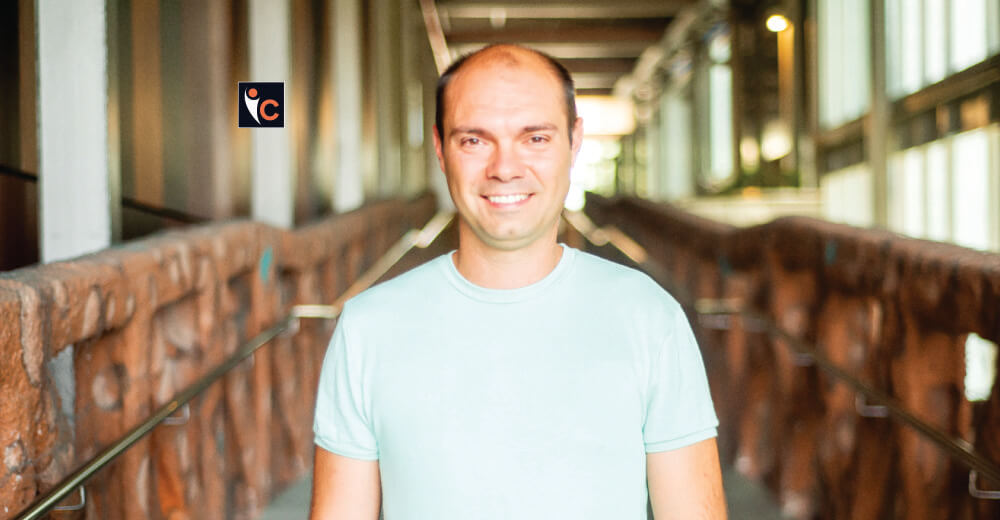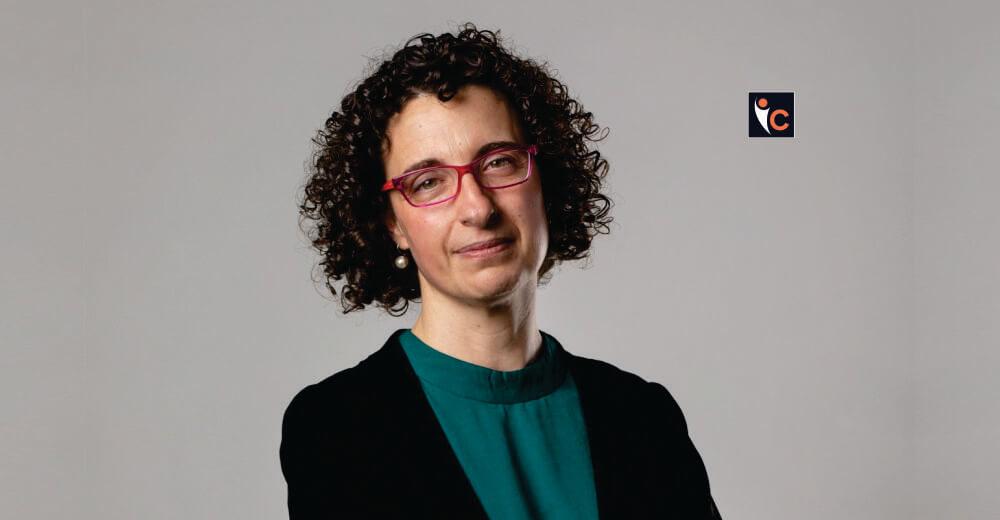Artificial intelligence (AI) in healthcare is the discipline of using data-intensive computer-based solutions to improve patient care and outcome. Modern AI systems can potentially improve diagnostic and treatment decisions while reducing medical errors. In the fields of medical imaging and diagnostics, AI has made great progress. In-depth learning techniques aid in the prevention of diagnostic errors and the improvement of test results.
AI also aids in identifying infant severities, such as infant meningitis, and based on the infection’s identification; healthcare professionals can diagnose the problem and provide prompt medical treatment. Early detection and treatment are critical for a successful outcome; however, identifying meningitis is a complicated process involving various signs, symptoms, and multiple factors that necessitate novel solutions to support precise clinical decision-making.
Newborn Solutions, a medical device startup that enables non-invasive infection screening and monitoring, developed a first-in-class investigational medical device (not for sale) that uses high-resolution ultrasound, unique coupling materials, and Artificial Intelligence algorithms to accurately rule out or confirm meningitis in neonates and small infants in a quick, easy, and cost-effective manner.
Under the leadership of Javier Jiménez, Founder and CEO, the company sets a new benchmark for screening and treatment monitoring. It augments the management and diagnosis of infant meningitis by enabling quick, easy detection, quantitative, reliable, and frequent treatment monitoring.
With a desire to revolutionize the field of medical devices for the non-invasive monitoring and screening of infant meningitis, Javier Jimenez founded Newborn Solutions. Javier intends to generate impact, innovation, and patient-oriented development in healthcare through its various partnerships, to create medical devices that can confirm meningitis in a quick, easy, and cost-effective way.
In an exclusive interview with Insights Care, Javier sheds light on the significance of the company while highlighting its vision and mission in the modern healthcare niche.
Below are the highlights of the interview:
Enlighten our readers about your company in detail
Newborn Solutions is a medical device start-up that enables non-invasive screening, diagnosis, and monitoring of infections in serous body fluids, with an initial and primary focus on infant meningitis. We are also developing second-line applications upon request from key opinion leaders. Particularly, the device is being tested to show clinical proof of concept in uveitis and peritonitis. First data from these second-line applications are already very promising.
Meningitis suspicion is challenging due to the unspecific signs associated with the infection, such as fever of an unknown source, particularly in infants and newborns with very little symptomatology. That is why history and physical examination alone are often insufficient to confirm or exclude the diagnosis.
Lumbar puncture to draw a sample of cerebrospinal fluid is an essential investigation and the current standard. Still, it is often difficult to obtain a clean sample and potentially hazardous for the sick child. Neosonics, the medical device we have developed, will be used to accurately rule out or raise early suspicion of meningitis in a quick, easy, and cost-effective way.
Neosonics is a first-in-class medical device that uses high-resolution ultrasound, unique coupling materials, and deep-learning artificial intelligence algorithms to automatically count, at the push of a button, white blood cells in the cerebrospinal fluid directly below the infant fontanelle, a well-established diagnostic marker for infections.
We also work on our software-based development, Neosonics-AI. AI gives us automatization, speed, and accuracy. When combing non-invasive cell concentration measurement with Big Data, AI also has the potential to empower the user (expert and non-expert) with diagnostic information of the likely causing organisms so that the right treatment, dose, and duration can be applied anywhere.
Kindly tell us about yourself and your professional tenure so far in the healthcare niche.
As a telecommunication engineer with experience in the medical imaging field, I was looking for a way to have an impact on society. The opportunity arose when I participated in the M+Visión program, an initiative of the Madri+d Foundation and the Massachusetts Institute of Technology (MIT) to leverage the biomedical industry in the Regional Government of Madrid. Madrid-MIT M+Visión researchers are selected from all over the world to form multinational and multicultural teams to generate technology-based ideas that solve unmet medical needs.
Newborn Solutions was founded as a result of this program. The start-up was launched and incorporated in 2015, with co-founder Pablo García -an experienced CFO-with the desire to revolutionize the field of medical devices for non-invasive screening and monitoring of infant meningitis. In 2017, Rita Quesada, Regulatory Lead of Newborn Solutions, joined us and has been a part of the leadership of the company since then.
What are the core values that the organization stands by? What is its mission and vision statement?
Among our core values, we highlight equality and social inclusion, sustainability, and global awareness. We consider global health a priority, and we are contributing to improving healthcare around the world and reaching vulnerable populations and communities with our high-impact solutions.
Our mission is to enable quick, easy, cost-effective screening, diagnosis, and monitoring of infectious diseases in serous fluids through innovative non-invasive technology. We believe that the future of diagnostics must go through minimally invasive, quick, easy-to-use, and low-cost technologies. This is our vision from Newborn Solutions, given our operations in industrialized countries as well as in low and middle-income countries, and that is why we are using low-cost exponential technologies such as ultrasound and AI to enable and globally democratize accurate diagnosis and treatment.
What, in your opinion, are the key challenges in the healthcare sector? How is your company turning those challenges into opportunities?
We believe that the healthcare sector and clinical administrations have always aspired to have increasingly less invasive solutions at their disposal, which help them make quick and accurate diagnostic decisions to treat their patients efficiently and offer them better care. The disruption of AI in the healthcare sector, together with the use of Big Data, promises the emergence, in an almost unlimited way, of untapped solutions for the healthcare system, its professionals, and, ultimately, the health of patients.
It is a major paradigm shift that has many benefits for improving the sustainability of healthcare; however, the ethical and privacy issues arising from these new uses must be at the forefront of every new technological proposal that comes onto the market. I believe that an appropriate regulatory framework that protects citizens and their privacy is essential. In addition, I also believe hospital management teams, with often a limited budget for new initiatives, should grow conscience of the IT infrastructure, personnel, and security implications digitalization requires so that they can plan a gradual evolution towards the hospital of the future, a massive generator and accumulator of digitally-registered health data.
What are the key products and services offered by the company? How is it impacting the concerned demographic?
As aforementioned, our unique selling proposition is Neosonics, the screening and monitoring medical device, and Neosonics-AI, the predictive AI software for diagnosis and treatment support. Both solutions are platform technologies to be applied in the different serous fluids of the body. They are modular and complementary, and serve all applications: infant meningitis, uveitis, peritonitis, septic arthritis, and chorioamnionitis.
In industrialized countries where the incidence of infant meningitis is relatively low, Neosonics will limit the use of lumbar punctures to only those very few positive cases (3-5%), thus, dramatically reducing the use of such an invasive procedure on most of the suspected patients. In low-income settings where the burden of the disease is high but there is a lack of laboratory infrastructure and training, the device will help reduce misdiagnosis, mortality, and morbidity rates.
In which ways is the company adapting and including constant technological upgrades? How has it impacted the company growth curve?
Our vision of non-invasive medical devices pushes us to miniaturize and improve sensors to deliver better measurements that require minimum dependency on the user. We develop low-cost technology to make it available everywhere, including middle and low-income countries where, as we mentioned, diagnostic capacities are scarce. That’s why digitalization is also at the core of our vision. We strive to upgrade our AI models by constantly updating them. That is possible by having access to more quality data (obtained with our miniaturized sensors) so that we can build better models and achieve better measurements.
As an experienced leader, what advice would you like to give to aspiring entrepreneurs and enthusiasts who wish to venture into the competitive industry that you are serving?
We are not an established industry leader. If anything, we are a start-up trying to have a global, meaningful impact in healthcare. My advice is to take one step at a time, having a clear long-term vision in mind, validate/test every decision before you take it, make the necessary stops to reflect on the big picture in case adjustments are needed, and if you are not thinking about your project 18h a day, do not take any further step.
Importantly, build a team where trust among members is reciprocated and where everyone wants to contribute to the mission of the company. There are too many uncertainties in the journey, and it is the team that will always allow the project to overcome the several adversities you will come across.
What are the future goals of your company, and how has it envisioned to scale its operations and reach in 2022 and beyond?
Neosonics, the device to non-invasively screen for infant meningitis, will be launched in early 2024, according to our plan. We will first enter Spain to show profitability, as we have invaluable KOLs with whom we are spreading a state of opinion about the project, commercialization companies with an explicit interest in launching the product, and where we support the Spanish Meningitis Association.
The USA is our next target market, followed by a country with a high disease burden yet a lack of resources, like India. By showing adoption in these regions, we will be proving the scalability of the business, not only in infant meningitis but also in second-line applications, like peritonitis or uveitis. While we have committed commercialization partners in Spain, we are looking forward to engaging with a strategic partner for global commercialization with whom we can maximize synergies and jointly deliver value as much as possible.









